One of Netflix’s newest releases, The Get Down, deals with poverty, the South Bronx in 1977, institutional abandonment of Black and brown neighborhoods, and the role a rapidly changing music scene plays in the midst of it all. With direction by Baz Luhrmann, and a cast full of young well-known and newcomer actors of color alike including Jaden Smith, Daveed Diggs, Shameik Moore, Justice Smith, and Herizen Guardiola, the show takes viewers on a ride through the ghetto during one hot summer.
The show is beautiful. If you’ve seen any of his work (Moulin Rouge, Romeo + Juliet, etc.), you know that Baz Luhrmann is a genius director. The Get Down only reminded me of how much I love his work. The Bronx is painted in a way that feels beautifully dangerous—it’s a city that is both literally and metaphorically on fire. Luhrmann has figured out a way to seamlessly infuse archival footage of the Bronx in 1977 into the world of the show in a way that is sometimes confusing; what’s real and what’s created isn’t always clear.
Luhrmann uses music as a storytelling medium throughout the show and through it, we see and hear the Bronx change from a war zone to a city of possibilities. Disco’s morphology into hip-hop parallels the main characters’ storylines as they transform out of the rigid roles expected of them into something new, different, and often misunderstood. The symbolic death of disco during the shooting at Les Inferno makes way for new voices to become important both in the music world and in the social world of the Bronx.
At a surface level, nothing seems to be off-limits for The Get Down. One of the main characters is a part-time drug dealer and sex worker who is continuously referred to as “a faggot.” Another character deals with the pressures of wanting to escape a neighborhood that raised him but is currently in ruins. We grapple with the tension between a poverty pimp—someone who deeply cares about his community, but often in ways that are not lawful—versus a government that uses a “ghetto poster boy” to get votes for a community it refuses to actually invest in.
We even get a quick lesson about the queer origins of hip-hop. But that’s just the thing: it’s only a quick lesson. While The Get Down digs deeply into parts of hip-hop’s creation, it simultaneously skims over other parts. I’ve seen the show hailed as the ode to LGBTQ music history that we so desperately want, but is it really?
The only time the show really explores queerness is a short discussion of who controls the music scene at the time. In the late ’70s, the power of the radio diminished, and if someone wanted their song to become popular, the DJs, who were primarily gay men, played them at their clubs. But while we spend the first five (out of six) episodes learning about DJs and B-Boys, we don’t learn that they’re all primarily queer until the season is almost over.
In another moment, Jaden Smith’s character, Dizzie, meets another graffiti artist who brings him to a gay club. In a scene that is a whirlwind of drag queens, disco music, and flashy lighting, we get a glimpse into the queer life of 1970s music culture. But that’s it. The scene happens but isn’t ever mentioned again. Queerness is both vitally important to the creation of this new genre of music (and therefore the storyline of the show) and ignored as an unimportant side-plot. How is that possible?
Even prior to the scene in the gay club, there is an undeniable queer tension throughout the first season of The Get Down. From the first moment two of the main characters, Zeke (Justice Smith) and Shaolin (Shameik Moore), meet each other until the last scene of the finale, I wanted them to kiss. The subtext was there, but overt queerness was not. Instead, Zeke spends his summer in conflict over his love for Mylene (Guardiola) and his new passion as Shaolin’s wordsmith.
And isn’t this what we expected? Queerbaiting, after all, isn’t new. We’ve come to expect to have to write our own queer characters in mainstream television. We get hooked on something small—a smile or a touch—and hope all season that something will come of it. Something rarely does. Even in its recognition of queer culture’s influence on hip-hop and its (almost) canon queer character, Dizzie, The Get Down continues in this tradition. It’s gay enough that straight media can call it progressive, but it’s not gay enough to satisfy our need for real queer content with substance.
Despite this, I want the show to be renewed. In fact, I think it’s important that it does get renewed. This is a story centered around poor Black and Latinx communities, their struggles with institutional abandonment, and their journeys to self-love and empowerment. We don’t see that and I want more. I want another season because there are unanswered questions: Shaolin and Zeke’s relationship, Dizzie’s newly discovered sexualities, and Mylene’s family secrets are just a few of them.
Right now, The Get Down is not queer. Not in any meaningful way. But it is queering the way we watch television. It is putting ugly, unfamiliar things in front of people on their television scenes and juxtaposing that ugliness with catchy dance music. It’s highlighting the chosen family versus the biological one in ways that don’t cast judgment on the choices one makes. It shows the possibilities of the ghetto as a place where people want to live, not just escape. Mixed-race people of color grapple with their identities in ways that don’t equate them to one race or the other. Figuring out right and wrong isn’t as easy as it seems.
I think this show is trying to do a lot more than it can do in six episodes. I’m choosing to be hopeful, to hope that the small signs we got this season will become part of a larger discussion in the next. This show has wings. And, to paraphrase Shaolin, if it’s got wings, it’s got to fly. It’s got the potential to fly and become something important; at once an archive of the intersections of queerness, Black and brown identities, and poverty, and a look at the present and into the future. So here’s to the potential of The Get Down. It’s done so much in one season, I cannot wait to see where else it takes us.



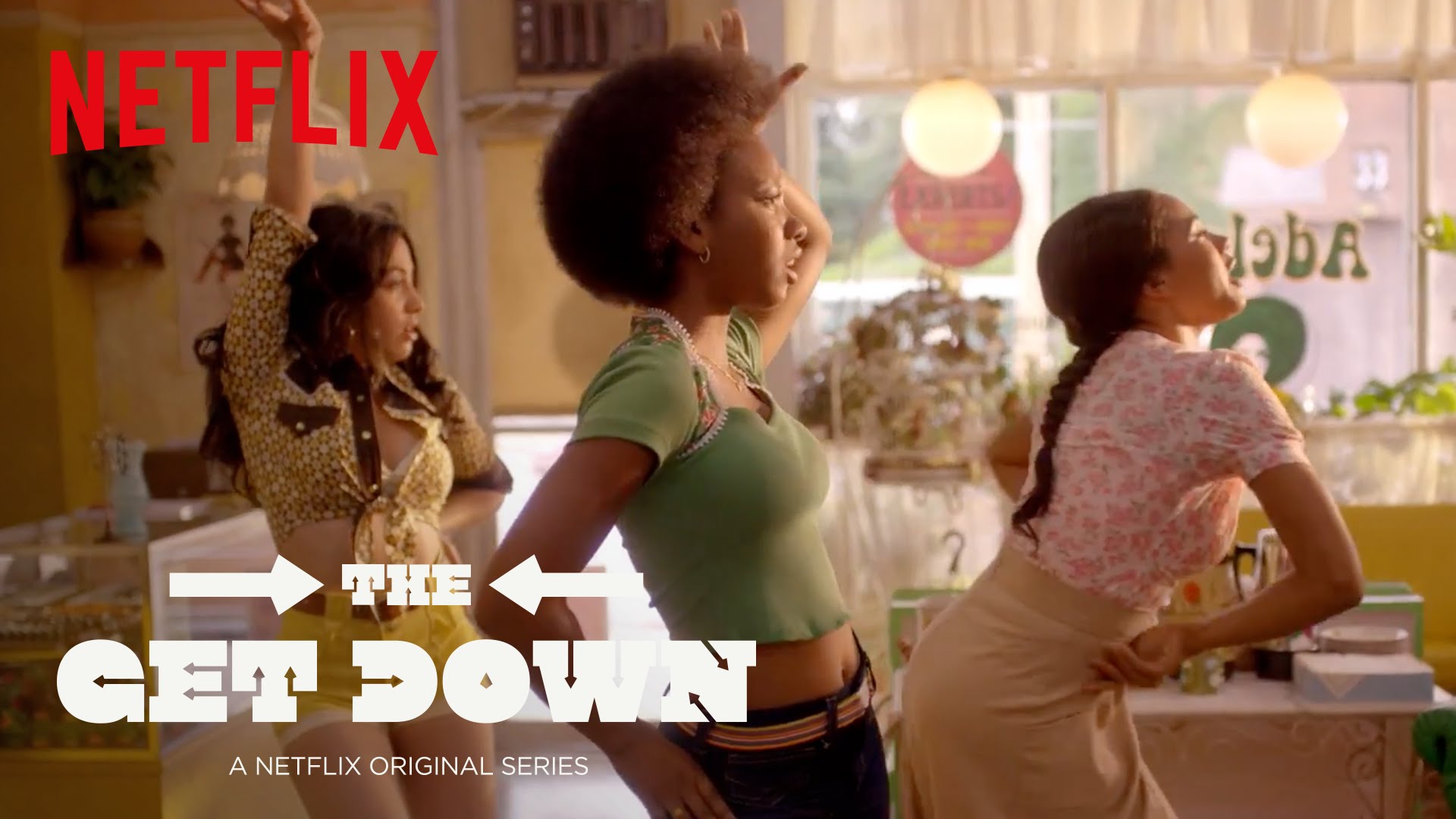
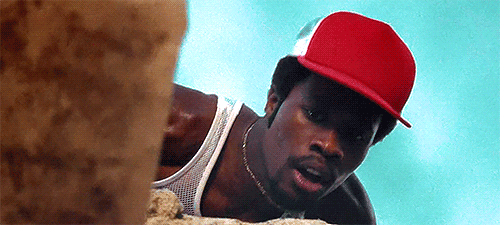
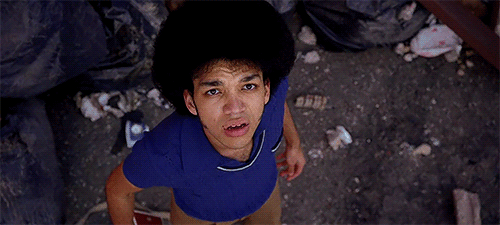
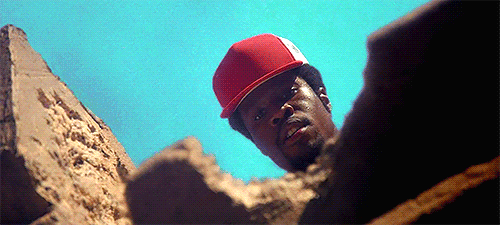
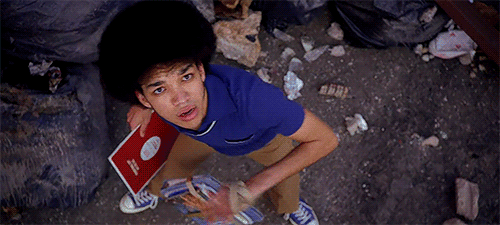
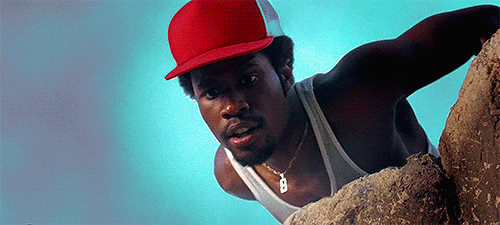




Comments
I love this show so far, but you bring up some good points! I know this season was planned to be released as 12 episodes instead of 6, and that the writers were disappointed that fans wouldn’t get the whole experience at once — maybe the next six episodes will go more into the LGBTQ+ side! Praying praying that queerness gets more screentime, and that we can watch Shaolin come to terms with his feelings for Zeke. Thanks for writing this!
I really enjoyed the show. Not as much as I did Stranger Things but that’s only because I watched it immediately after. The music was great. I loved all the characters, though Shaolin does irk me with his constant jealousy and manipulation of Zeke. Mylene is the same way.
i don’t think we have seen the last of anything queer in the show. My understanding is that Thor will be in the second half of the season(whenever that gets released) so we will likely get more moments between him and Dizzie.
Speaking of queer DJs, Billy Porter makes a cameo in the first episode in an almost unrecognizable role. I’m sad we didn’t get to see more of him.
more gay black/brown tv!
but yeah, the get down was really enjoyable but definitely nowhere near the levels of queer that one needs as a brown queer person!!!
like even though dizzee and thor make out, the way it is shot is so much less explicit than the straight kisses in the show, you don’t really see them kissing, it’s much more implied. i hate that shit. let gays kiss like str8s and be done with it. its the classic ‘gay cut away’ and its boring and should be out of fashion by now :(
“if it’s got wings, it’s got to fly” — and the Get Down has such wings! thank you for writing about this show. i watched it when it was released and felt like i was screaming into the void about how damn good it was, so i’m delighted to see it not getting left by the wayside.
i’m really hoping for a season two that engages with queerness and colorism in a more tangible way. there’s a lot of depth to this show. i want it to soar!
Great analysis of a really good show.
I’m not sure if the writers are consciously queer baiting with the Zeke/Shaolin relationship or if heteronormativity prevented them from realizing how romantic some of those scenes actually were. The whole Mylene/Zeke/Shao dynamic felt like a love triangle tbh
Also as much as I enjoyed what we saw of Dizzee/Thor on imdb it doesn’t look like Jayden Smith is in that many episodes??? Not sure what that means for queer content next season :(
Thanks for writing up on this show!
I just loved watching the actors on screen, super talented, the music was great. I liked the convergence of graffiti art with the invention of hip hop, and going into the unknown of where disco leaves off.
I was shipping Dizzee and Thor, they were cute together.
I totally see the love triangle between Mylene/Zeke/Shao as well.
and I generally like the whole aesthetic of the show. gritty but Pretty. Looking forward to the next episodes.
Agree with everyone else in the comments pretty much, but wanted to voice my appreciation of that GIF set. A+++. More brown/black boys in popular media giving each other tender looks without it being a shitty joke please thanks.
riiiiight??? when i saw that in the first episode my mind was BLOWN like holy tenderness what is going on here i don’t know yet but i’m INTO IT.
YO I was hooked when I saw the Pro Keds and they said “make sure you didn’t leave your Bus Pass in the car”.
Autostraddle always has perfectly timed reviews. JUST finished this tonight. Mixed feelings as well. I felt at times that the plot was a little weak. A bit too much “will they or won’t they” in all of the dynamics. I get that it’s making a point about choosing paths, but it was echo’d in so many places that it felt a bit hollow. However, this is the ONLY show I can remember in years completely centered on not-white people with actual full-fledged storylines and which also isn’t a sitcom. It makes me excited similarly to how the movie “Attack the Block” did. And I REALLY enjoy it for that. Additionally, as someone born and raised in NY, it is a fun and familiar context. I miss those accents. What does a New Yorker love seeing more than themselves? haha
While I appreciate that historically LGBTQ have done a lot for the musical genre that they are exploring I Can’t really say that the shaolin/zeke dynamic is what you think it is? I to, have personal preferences in what I would like to see the show go towards to as well…but I wouldn’t write an article proclaiming that it SHOULD do this or that..I mean it is covering a lot of ground who are we to tell the directors to focus on a particular part vs what they desire? They seem to be focusing on the creation of the MUSIC genre itself. Everything else is an exploration of the times it was created in as a backdrop. A show about music should maintain its focus on just that (in my opinion) , or it will get to meandering and thin.I just don’t like the general tone of your article I guess.
(I’m more in the hip hop / rap camp so I have been fairly pleased with what they do with the short time they can. Also dislike disco , so don’t like how much they give to the girls story line but it history and romantic story lines always sell, so I get that. )
“but it history… so I get that”
But the queer history bothers you… ? When it’s an integral part of the music at the time, it’s the history and leaving it out is ignoring the music itself.
i’ll take casual homophobia for $400, alex.
Ooh! We have the Daily Double!
Thanks Alaina. Going to be watching it soon. Hoping this weekend. Glad to know it does well on race. Getting sick of too much white TV.
Thank you for writing this! I feel the same way, I can only hope for the best in the new episodes (they’re coming, right?) I’ve been running on fumes recently with barely-there queer content so fingers crossed!
I’m returning to this article after watching part two of season one and I feel like your points ring out even more now. This show is so close to being something but they keep turning that into nothing. Dizzee has been confirmed by showrunners as bisexual, but Thor and Dizzee’s relationship is the more chaste than any other pairing in the show by orders of magnitude and I’m bitter.